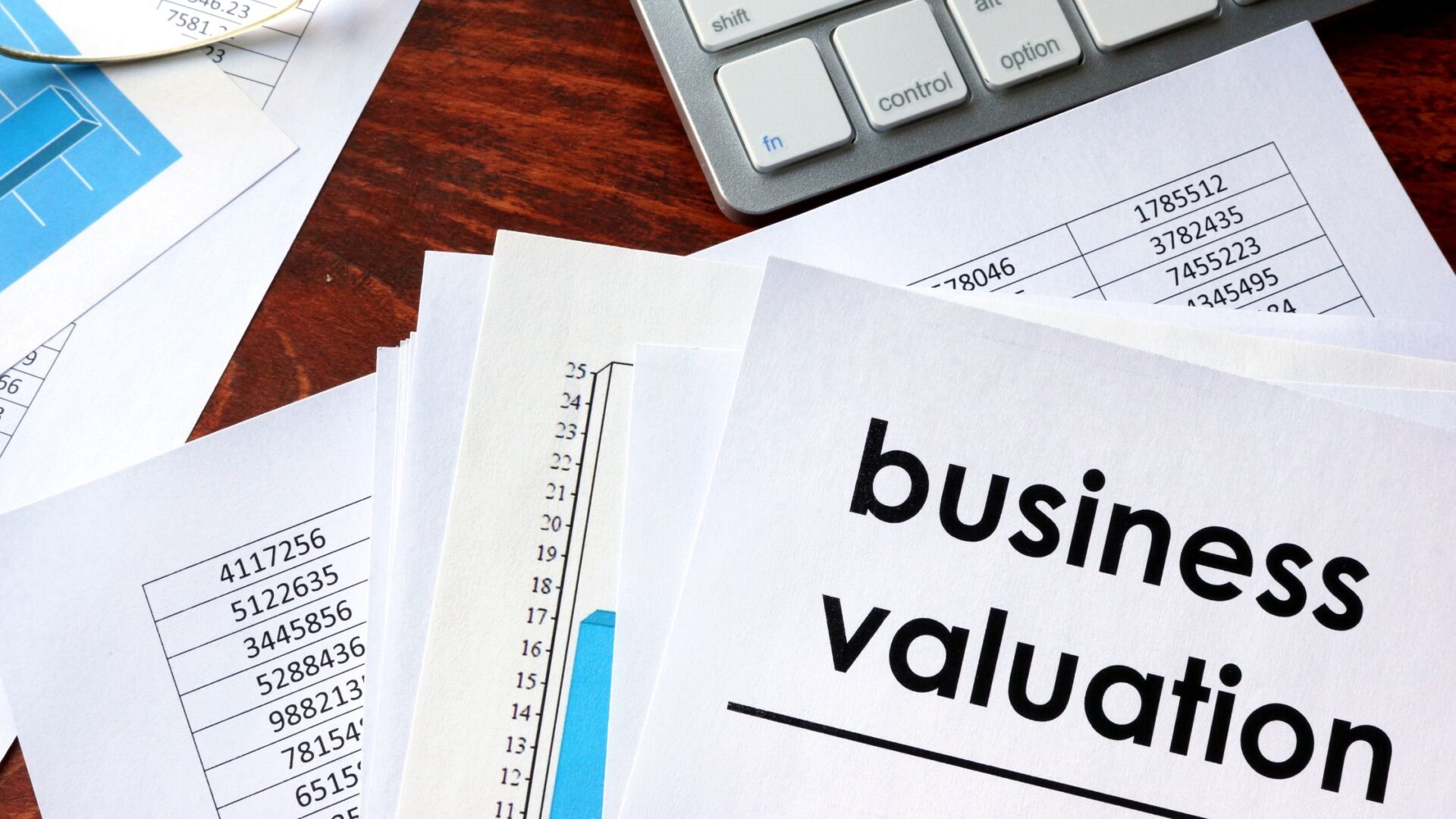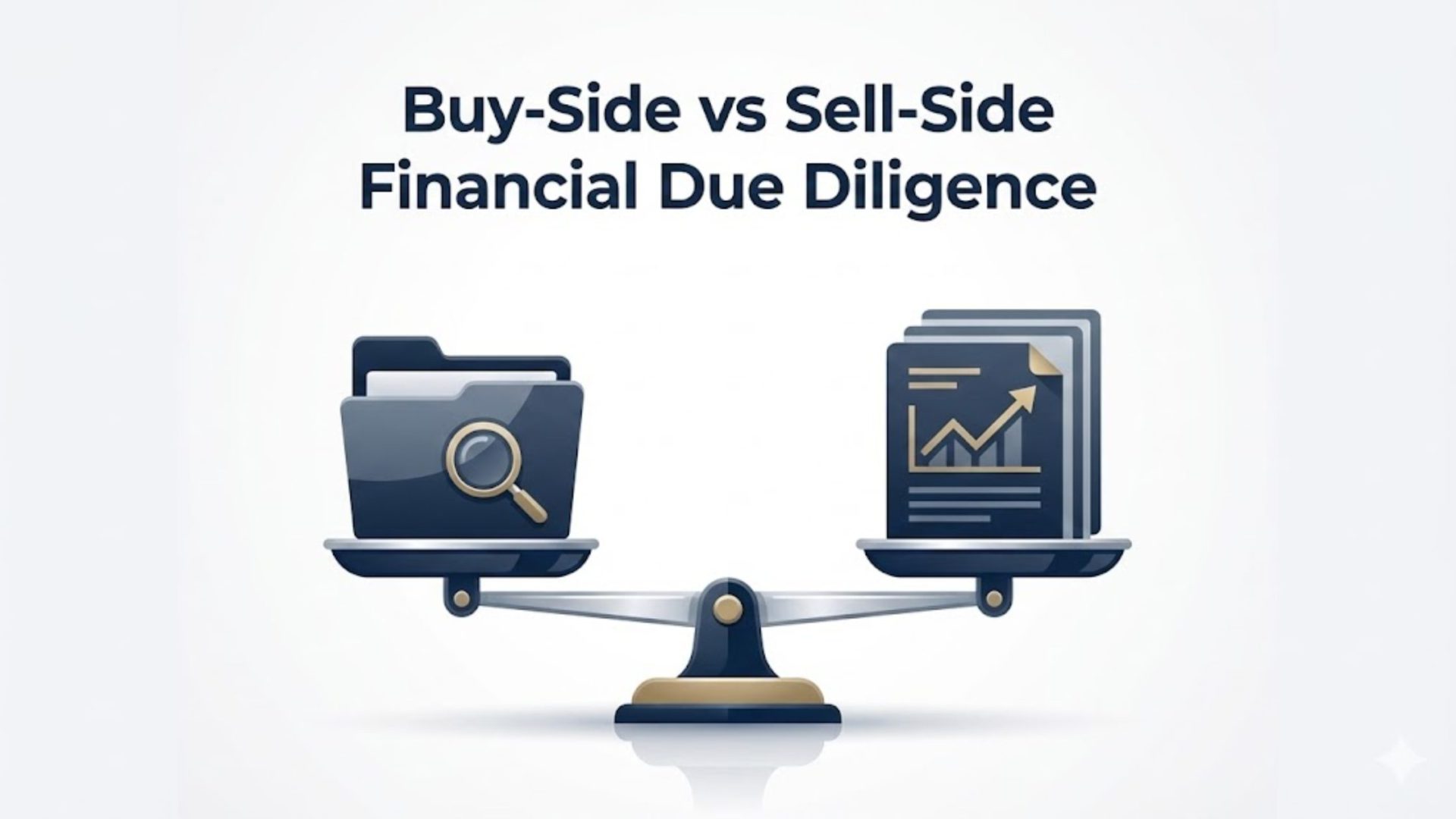Merger and Acquisition Valuation Methods: Choosing the Right Approach
Published on 5/8/2024

Merger and Acquisition Valuation: Cornerstone of Successful Deals
Achieving a successful merger or acquisition (M&A) hinges on one crucial factor: accurate valuation. Experts understand that a fair and well-supported valuation is the cornerstone of any successful deal. By choosing the right M&A valuation method, both buyers and sellers enter negotiations with a clear understanding of the target company’s true worth. This blog post will equip you with the knowledge to navigate the various M&A valuation methods and select the most suitable approach for your specific deal.
Understanding M&A Valuation Methods
M&A valuation is the process of determining the fair market value of a target company in the context of a merger or acquisition. It plays a critical role in deal negotiations, setting the benchmark for discussions and influencing the final purchase price. There are several merger and acquisition valuation techniques used by professionals to assess business worth. Broadly, these company valuation approaches in M&A are categorized into three main frameworks, each with its own strengths and weaknesses:
-
Market Approach: This approach compares the target company to similar companies that have recently been acquired or are publicly traded.
-
Income Approach: This method estimates the future cash flow potential of the target company and discounts it to its present value.
-
Asset Approach: This approach focuses on the net asset value of the target company, considering the fair market value of its tangible and intangible assets.
These methods to determine fair value in mergers form the foundation of any valuation framework for M&A deals, helping buyers and sellers make informed decisions.
For detailed information about valuation methods, visit now!
Key M&A Valuation Methods Explained
- Market Approach:
- Comparable Company Analysis (CCA): The workhorse of the market approach, CCA involves identifying publicly traded or recently acquired companies that closely resemble the target company in terms of size, industry, profitability, and growth potential. By analyzing the market multiples (e.g., price-to-earnings ratio) of these comparable companies, an estimated value for the target company can be derived.
- Challenges of CCA: Finding truly comparable companies can be difficult, especially for unique businesses or those in niche markets. Additionally, market multiples can be volatile and influenced by external factors.
- Income Approach:
- Discounted Cash Flow (DCF) Analysis: DCF is a popular valuation method that focuses on the target company’s future cash flow generation. It involves forecasting the company’s future cash flows, discounting them to their present value based on a chosen discount rate, and summing them up to arrive at a present value estimate of the company’s worth.
- Importance of Assumptions: The accuracy of a DCF analysis heavily relies on the underlying assumptions used, such as the discount rate, growth rate, and future cash flow projections. Inaccurate assumptions can significantly skew the final valuation.
- Asset Approach:
- Book Value Method: This method simply uses the company’s net book value (total assets minus total liabilities) as a proxy for its fair market value.
- Limitations of Book Value: Book value often doesn’t reflect the true market value of a company’s assets, particularly intangible assets like brand reputation or intellectual property.
- Market Value of Assets Method: This method values the company’s assets based on their estimated fair market value, providing a more accurate picture than book value. However, it can be time-consuming and complex to determine the fair market value of certain assets.
- When to Use the Asset Approach: The asset approach is most relevant for valuing companies with limited operating history, distressed companies, or those holding a significant amount of tangible assets.

Choosing the Right Valuation Method
Selecting the most appropriate valuation method for mergers and acquisitions is a crucial step in the M&A valuation process. The choice of method depends on multiple factors such as industry type, company performance, and the nature of the transaction. Using the right merger and acquisition valuation techniques ensures a fair, transparent, and data-backed assessment of the target company’s worth.
-
Industry Considerations: Different industries demand different company valuation approaches in M&A. For instance, tech startups or high-growth sectors often rely on income-based models like Discounted Cash Flow (DCF), whereas manufacturing or asset-heavy companies may benefit more from the Asset-Based Valuation Method.
-
Company Financials: The reliability of financial statements, cash flow projections, and revenue trends significantly impacts which methods to determine fair value in mergers are most suitable. Companies with strong historical data can use market or income approaches, while those with limited financial records may require asset-based or adjusted book value methods.
-
Deal Type and Objective: The chosen valuation framework can vary based on the type of M&A deal — whether it’s a strategic acquisition, merger for synergy creation, or a consolidation. Strategic buyers typically focus on long-term synergy and ROI, while financial investors prioritize short-term profitability and return potential.
In many cases, experts recommend using a combination of valuation methods in M&A to obtain a more comprehensive and accurate estimation of the company’s enterprise value. A blended approach minimizes risk, validates assumptions, and provides a balanced view of the target’s true market worth.
Benefits of Working with Inspirigence Advisors
Inspirigence Advisors offers expert M&A advisory and valuation services, helping clients navigate the merger and acquisition valuation process with clarity and confidence. Our team of valuation specialists identifies the most suitable valuation method for your deal, ensuring fair pricing and informed decision-making. With deep industry insight and experience across sectors, we deliver strategic M&A advisory solutions tailored to your business goals and transaction needs.
Ready to Secure a Win-Win M&A Deal?
Contact Inspirigence Advisors today for a no-obligation M&A consultation to discuss your M&A valuation needs. We offer a free initial consultation to answer your questions and guide you through the M&A process. Let our expertise empower you to make informed decisions and achieve your M&A goals.
FAQs on M&A Valuation
1. How to value a company for merger and acquisition?
Ans. Valuing a company for a merger or acquisition involves assessing its financial performance, growth potential, and market position using structured valuation techniques. The three major methods—Market Approach, Income Approach, and Asset Approach—form the foundation of the process.
-
The Market Approach compares the company with similar businesses that were recently sold or are publicly traded.
-
The Income Approach, especially the Discounted Cash Flow (DCF) model, focuses on future cash flows and profitability.
-
The Asset Approach evaluates the company’s tangible and intangible assets at fair market value.
A professional M&A valuation advisor often blends these approaches to determine the most accurate enterprise value, ensuring the deal reflects both current worth and future potential.
2. What are the most common business valuation methods used in mergers and acquisitions?
Ans. The most widely used business valuation methods for mergers and acquisitions are:
-
Comparable Company Analysis (CCA): Uses market multiples like EV/EBITDA and P/E ratios from similar firms.
-
Precedent Transaction Analysis: Evaluates previous M&A deals in the same industry to identify valuation trends.
-
Discounted Cash Flow (DCF) Analysis: Estimates future cash flows and discounts them to present value, ideal for growth-oriented firms.
-
Adjusted Net Asset Value (NAV): Focuses on the fair market value of assets and liabilities, often used in asset-heavy industries.
Each method serves a distinct purpose, and experts often apply multiple methods to cross-verify and strengthen the M&A valuation process.
3. What factors affect valuation in M&A deals?
Ans. Several factors affecting M&A valuation determine the final deal price:
-
Financial Health: Revenue stability, profitability, and debt levels directly influence perceived value.
-
Synergy Potential: Expected cost savings or revenue growth post-merger increase valuation.
-
Industry Dynamics: Market demand, competition, and regulatory conditions shape valuation multiples.
-
Management Team: Strong leadership and corporate governance add intangible value.
-
Brand Equity and Intellectual Property: Established brand recognition, patents, or proprietary technology can significantly boost worth.
-
Macroeconomic Environment: Interest rates, inflation, and investor sentiment affect deal attractiveness.
Understanding these drivers ensures a fair, data-backed negotiation for both buyer and seller.
4. Why is accurate valuation important in mergers and acquisitions?
Ans. The strategic importance of valuation in M&A cannot be overstated. Accurate valuation provides a clear, evidence-based understanding of the target company’s financial and strategic value.
It helps:
-
Prevent overpayment or undervaluation errors that could impact post-merger returns.
-
Facilitate transparent negotiations and build trust between parties.
-
Support due diligence, ensuring hidden risks or liabilities are identified early.
-
Aid in capital allocation and funding decisions, especially when external financing is involved.
Inaccurate valuation can derail even promising mergers, making professional valuation support essential for success.
5. Can multiple valuation methods be combined in an M&A deal?
Ans. Yes, combining valuation methods—known as a hybrid or triangulation approach—is a common practice in professional M&A advisory. Since every method has inherent limitations, a blended approach helps achieve a balanced and defendable value range.
For instance:
-
DCF can capture long-term value creation potential.
-
Comparable Company Analysis validates market sentiment and pricing trends.
-
Asset-Based Valuation ensures tangible and intangible resources are properly accounted for.
By cross-referencing results, advisors create a more holistic picture of the company’s true worth, minimizing valuation bias and improving deal accuracy.
6. How does due diligence relate to M&A valuation?
Ans. Due diligence is an integral step in the M&A deal valuation process. It involves verifying the target company’s financial statements, legal obligations, operations, and tax compliance.
A detailed due diligence exercise can reveal discrepancies in reported earnings, asset values, or liabilities—leading to necessary adjustments in valuation.
Hence, valuation and due diligence work hand-in-hand to ensure that the final transaction value reflects true economic and strategic potential rather than inflated projections.
7. Which valuation method works best for startups in M&A?
Ans. For startups or early-stage companies, traditional valuation models like DCF may not be ideal due to unpredictable cash flows. In such cases, methods like:
-
Venture Capital (VC) Method
-
Scorecard Valuation Method
-
Comparable Market Multiples (Revenue-based)
are preferred.
These approaches focus more on market traction, innovation potential, and scalability, ensuring fair pricing in high-growth or pre-revenue environments.
8. How can professional M&A valuation advisors help?
Ans. Professional valuation advisors bring technical expertise, industry benchmarks, and objectivity to the process. They can:
-
Identify the most relevant valuation methods for the deal.
-
Perform scenario analysis to evaluate risk and sensitivity.
-
Provide a well-documented valuation report to support negotiations and regulatory compliance.
Partnering with experts like Inspirigence Advisors ensures a transparent, defensible, and strategically aligned valuation outcome for every M&A transaction.


